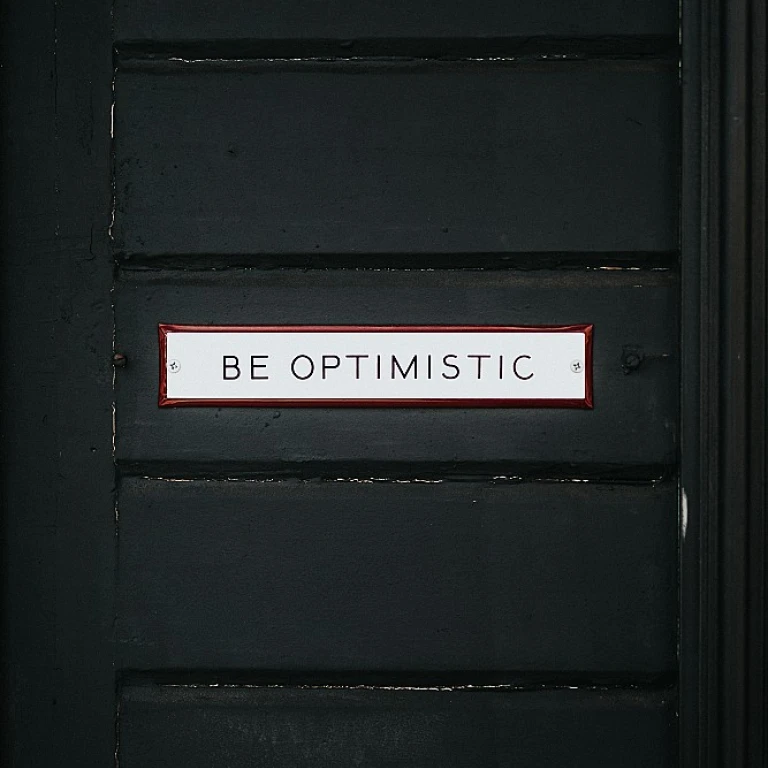
Understanding the Unique Hiring Challenges in Retail and Hospitality
Recognizing Industry-Specific Challenges
Both the retail and hospitality sectors present unique challenges in the hiring process, often requiring tailored solutions to attract and retain top talent. Seasonal demands, high turnover rates, and the necessity for exceptional customer service skills are common hurdles. Consequently, hiring managers are under constant pressure to improve their recruitment strategies while maintaining a competitive employer brand.
Identifying Talent Needs
The first step to addressing these challenges is understanding the specific staffing requirements. In retail, the focus is typically on roles that require frequent interaction with customers, necessitating pre-employment assessments that go beyond the traditional interview process. Meanwhile, the hospitality industry often demands flexibility, readiness for long hours, and adaptability to ever-changing work environments. A deeper exploration into staffing needs across various industries might offer additional insights.
Enhancing Candidate Experiences
The nature of retail hospitality positions often necessitates a focus on delivering a positive candidate experience. Swift progress through the recruitment process is crucial to secure in-demand candidates without protracted waiting times. Leveraging modern applicant tracking systems can streamline this process, enabling more efficient candidate screening and reducing time to hire. Indeed, embracing technology is not just beneficial but necessary for maintaining recruitment efficiency.
Leveraging Technology for Efficient Candidate Screening
The Power of Tech Tools in Candidate Screening
In the fast-paced world of retail and hospitality, effective screening of candidates can significantly impact the overall recruitment process. As these sectors are characterized by high turnover rates and a constant need for skilled individuals, leveraging technology becomes crucial. It not only enhances the recruiter’s ability to identify the right talent swiftly but also significantly improves the candidate experience. Streamlining the hiring process begins with utilizing advanced applicant tracking systems (ATS). These systems help in filtering applications efficiently, enabling hiring managers to focus on top talent. By automating the initial stages of screening, businesses save valuable time and increase the likelihood of finding suitable candidates who align with their organizational needs. Moreover, implementing video interviews as part of the pre-employment process offers candidates a flexible and convenient way to connect with potential employers. It simplifies scheduling, reduces the time-to-hire, and allows businesses to evaluate a candidate's soft skills and cultural fit from the comfort of their respective locations. Incorporating sophisticated recruitment software can also enhance the evaluation of a candidate's qualifications and experiences. By equipping hiring managers with robust software solutions, companies in retail and hospitality can easily manage volume applications, ensuring that they do not miss out on exceptional talent due to cumbersome manual processes. For organizations seeking to optimize their staffing strategies further, considering direct hire solutions can yield long-term benefits. They serve to expedite the recruitment of skilled professionals, creating a more seamless and personalized connection between employers and candidates. Learn more about unlocking the potential of direct hire solutions in tech recruitment. Harnessing these technological advancements ensures that retail and hospitality businesses not only shorten their recruitment cycles but also refine their strategy to attract and retain top talent over time. This symbiotic approach between technology and human resource strategies leads to improved staffing solutions, enhancing the business’s ability to offer unparalleled customer service.The Role of AI in Pre-Hire Assessments
Integrating AI for Enhanced Candidate Selection
Artificial Intelligence (AI) is progressively revolutionizing the recruitment process in the hospitality and retail sectors. The deployment of AI solutions can significantly enhance pre-hire assessments by automating and refining candidate screening processes, which in turn saves valuable time for hiring managers and improves the overall candidate experience. In today's tech-driven hiring landscape, AI plays a crucial role in parsing through vast volumes of applications to identify top talent quickly and efficiently. It allows the business to expedite its search for suitable candidates while maintaining high standards of selection criteria. By analyzing patterns and data within applications, AI helps in identifying qualified individuals for roles in retail and the hospitality industry. AI-driven tools also provide the advantage of minimizing bias during the recruitment process. In scenarios where hospitality staffing requires a comprehensive evaluation of skills and potential, AI systems help to ensure a more objective assessment. This objectivity can lead to more innovation within teams by fostering a workplace built on diverse and inclusive staffing solutions. Moreover, video interviews powered by AI can assess candidates' qualifications, communication skills, and overall suitability for customer service roles. This innovative approach helps employers maintain strong employer brands by ensuring that only the most fitting individuals make it through the initial screening stages. Implementing AI in pre-hire evaluations can also seamlessly integrate with existing applicant tracking systems. This integration streamlines the recruitment process, reducing time to hire and enhancing staffing efficiency. As businesses in the retail and hospitality sectors continue to leverage AI, it's essential to remain cognizant of the balance between technology and personal interaction to sustain a compelling candidate experience. For a thorough understanding of how AI and other technologies impact the hiring processes, it's essential to consider how technologies like background checks are influenced by these advancements. This understanding aids both hiring managers and talent acquisition teams in making more informed decisions in their recruitment efforts.Implementing Mobile-Friendly Application Processes
Streamlining the Digital Journey for Applicants
In today's fast-paced retail and hospitality sectors, candidates are looking for convenience and efficiency in the hiring process. One way to cater to this demand is by integrating mobile-friendly application systems. This shift not only simplifies the process for potential hires across varied roles but also strengthens the employer brand by showcasing an organization that's in tune with modern technology and applicant needs.
With more candidates accessing job portals through their smartphones, ensuring a mobile-optimized candidate experience is crucial. Mobile-friendly systems allow for quick, on-the-spot applications, reducing the time to hire and improving the candidate's overall experience. This seamless transition from interest to application can attract top talent and set a business apart in the competitive retail hospitality landscape.
Moreover, utilizing technology in staffing solutions ensures that hiring managers have real-time access to applicant tracking and pre-employment data. This makes it easier to screen candidates efficiently and tailor the interview process accordingly. Mobile integrations can also support video interviews, allowing flexibility for both the recruiter and the applicant, further streamlining the recruitment process.
Implementing these digital solutions is a step towards modernizing the recruitment journey, meeting the expectations of digitally-savvy talent, and fostering long-term engagement with new hires in the hospitality industry.
Utilizing Data Analytics for Better Hiring Decisions
Data-Driven Approaches to Enhance Hiring Outcomes
In the ever-evolving landscape of retail and hospitality, employing data analytics can significantly improve the recruitment process. This powerful tool aids hiring managers in making informed decisions that enhance the overall candidate experience and effectively bring top talent into the business. Firstly, the use of an applicant tracking system (ATS) gives businesses a robust framework to sift through vast pools of candidates. By analyzing historical hiring data, companies can identify patterns that predict successful hires, optimizing for traits that align well with customer service-focused roles. Additionally, real-time data insights provide a competitive edge, enabling staffing solutions that cater specifically to the dynamic needs of the retail and hospitality industries. Predictive analytics can help organizations better anticipate staffing needs, adjusting strategies to ensure they keep up with the demands of seasonal fluctuations without sacrificing candidate quality. Moreover, leveraging data can streamline processes, reducing the time-to-hire and improving pre-employment screening. It facilitates a more objective evaluation of candidates, ensuring that interviews—whether face-to-face or via video—are conducted with the most promising applicants, thereby enhancing both efficiency and accuracy. Incorporating these analytics-driven solutions, recruitment teams can refine their approaches to talent acquisition. By understanding the success metrics relevant to pre-hire assessments, such as candidate willingness to fit into the employer brand or potential longevity in hospitality staffing roles, hiring processes become more effective, satisfying both immediate staffing needs and preparing for long-term growth. The strategic use of data analytics not only improves the hiring process but also fortifies the recruitment architecture, setting the stage for successful hiring strategies that align with the fast-paced demands of the retail and hospitality sectors.Training and Onboarding: Preparing for Success
Enhancing Training and Onboarding for Optimal Candidate Engagement
In the rapidly evolving landscapes of retail and hospitality, effective training and onboarding are paramount for preparing hires for success. Establishing comprehensive programs not only equips new employees with essential skills but also strengthens the long-term value of your talent acquisition efforts.- Fostering a Positive Candidate Experience: As highlighted in the process of efficient candidate screening, maintaining a seamless and engaging recruitment process is vital. The onboarding phase should be an extension of this positive experience, ensuring candidates feel welcomed and valued from the outset. This involves not only an introduction to business operations but also instilling the brand’s culture and customer service ethos.
- Utilizing Video Interviews for Personalized Training: Advanced technologies like video interviews offer a dual benefit. They allow hiring managers to assess candidate fit during the screening phase and later serve as a tool for delivering personalized training content. Such methods enhance accessibility and flexibility, accommodating varied learning paces and schedules, crucial in the dynamic hospitality industry.
- Implementing Technology for Streamlined Staff Integration: From applicant tracking systems to tools tailored for hospitality staffing, technology offers robust solutions for managing the onboarding process. These systems help track progress, providing hiring managers with real-time updates on a new hire's integration journey. This aligns with previous discussions on leveraging AI and data analytics to optimize staffing solutions.













